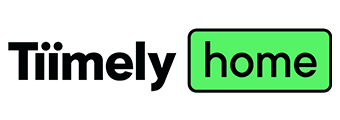Everyone's life circumstances change over time. Sometimes such changes mean you have to move out of your home, temporarily or permanently, but that doesn't necessarily mean you have to sell. You might choose to turn your home into a rental property instead.
While not the most common strategy, plenty of Australian homeowners choose to rent their home out rather than selling, Little Real Estate regional manager Samantha Smith told Your Mortgage.
"Some may need to relocate for work or travel and prefer to retain their home rather than sell," she said.
"Others may upgrade to a new property while keeping their existing home as an investment, particularly if they have built equity and can manage both mortgages."
Does it make sense to turn your home into an investment property?
If you've found yourself having to relocate for work or travel, or you've upgraded to a new home, renting out your once-owner-occupied property can be a wealth building strategy, Ms Smith said.
"Investors often retain properties to benefit from capital growth and use that equity to finance future investments."
Renting your home out for a period could also allow you the freedom to purchase a new property, move your belongings, and reassess, perhaps negating the need for bridging finance.
See also: Should you buy and then sell, or sell and then buy?
Or, you might simply not want to sell. After all, your home may be your castle, and people tend to form strong bonds with a place after calling it home. Remember, however, putting tenants in a home you have an emotional connection to could cause tension.
"Tenants may not maintain the property in the same way the owner did," Ms Smith said.
"Differences in expectations around maintenance can lead to disputes, particularly if a tenant expects repairs or upgrades that the homeowner might not consider necessary.
"Property wear and tear, as well as the administrative responsibilities of being a landlord, can also be more demanding than expected."
What are the financial implications of turning an owner-occupied home into an investment property?
Money, money, money. Renting out your home as an investment property usually comes down to financials – both potential gains and added costs.
And within the financials, there are often two distinct considerations:
-
Your mortgage
Do you need to switch to an investment home loan? -
Your tax position
How will tax deductions, Capital Gains Tax (CGT), and negative gearing affect you?
Each can complicate things, so it's essential to be prepared.
Do you need to refinance to an investment home loan?
If you have an owner-occupier home loan, your lender may require you to switch to an investment loan before renting out your home. Investment loans typically come with:
-
Higher interest rates
Lenders consider investment loans higher risk than owner-occupier loans. -
Stricter lending criteria
Your lender may reassess your finances before approving the switch. -
Different repayment structures
Some investment loans offer interest only repayments as standard.
Your lender might allow you to rent out your home under your existing home loan, but long-term, they may require you to switch to an investment mortgage.
Tip: Investment loans can be more expensive due to higher interest rates, so before agreeing to one, compare lenders to find the best deal.
Find some of the most competitive investment home loans on the market now:
| Lender | Home Loan | Interest Rate | Comparison Rate* | Monthly Repayment | Repayment type | Rate Type | Offset | Redraw | Ongoing Fees | Upfront Fees | Max LVR | Lump Sum Repayment | Additional Repayments | Split Loan Option | Tags | Features | Link | Compare | Promoted Product | Disclosure |
|---|---|---|---|---|---|---|---|---|---|---|---|---|---|---|---|---|---|---|---|---|
5.94% p.a. | 6.28% p.a. | $2,978 | Principal & Interest | Variable | $0 | $530 | 90% |
| Disclosure | |||||||||||
6.04% p.a. | 5.95% p.a. | $3,011 | Principal & Interest | Variable | $0 | $0 | 80% | 100% owned by Commbank |
| Disclosure | ||||||||||
6.09% p.a. | 6.11% p.a. | $3,027 | Principal & Interest | Variable | $0 | $350 | 60% | |||||||||||||
8.82% p.a. | 8.87% p.a. | $3,959 | Principal & Interest | Variable | $0 | $0 | 90% | |||||||||||||
6.04% p.a. | 6.05% p.a. | $3,011 | Principal & Interest | Variable | $0 | $0 | 80% | |||||||||||||
6.09% p.a. | 6.13% p.a. | $3,027 | Principal & Interest | Variable | $0 | $530 | 90% |
| Promoted | Disclosure |
Tax implications to consider
Turning your home into an investment property isn't just about collecting rent and realising equity growth – there are also tax implications to consider. You should be particularly aware of deductible expenses, Capital Gains Tax (CGT), and negative gearing, as property investors can face different rules than those invested in other asset classes.
Investment property tax deductions
It's important to understand that you can typically deduct expenses related to your investment property, as well as depreciation of said property.
"One key deduction is a tax depreciation report, which outlines all claimable depreciation on the property's fixtures and fittings," Ms Smith said. "It's important to use a reputable company for this.
"Other deductible expenses include property management fees, loan interest, council rates, insurance, and maintenance costs.
"Keeping thorough records ensures homeowners can maximise their tax benefits."
Capital Gains Tax (CGT)
Once your principal place of residence (PPOR) becomes an investment property, you lose the CGT exemption that applies to your primary residence. This means that when you sell the property, you'll need to pay tax on any capital gains realised during the time the property was rented out – which is the difference between:
The property's market value when you moved out vs. its market value when you sell
However, some investors can reduce or eliminate CGT liability using the six-year rule.
What is the six-year CGT rule?
The six-year rule allows property owners to move out, rent their home, and still claim it as their principal residence for CGT purposes - provided they don't buy another primary residence and sell up within six years. The six-year period resets if you move back in at any point before selling.
Negative gearing
When your home becomes an investment property, your tax position changes. You must declare rental income, but you can also claim deductions on eligible expenses, which can significantly reduce your taxable income.
If your rental property operates at a loss (in other words, associated expenses exceed rental income), you may be able to offset that loss against your taxable income – this is called negative gearing.
As a landlord, you can deduct a range of expenses associated with owning and managing your rental property. These deductions can significantly reduce your taxable income and, in some cases, result in a tax refund.
What requirements must I meet before renting out my home in Australia?
Beyond the finances, there are a number of legal considerations someone thinking about renting out their home must be aware of. Firstly, tenancy laws.
Tenancy laws
Each state and territory has its own set of tenancy laws and regulations. These dictate what an investment property must offer, what landlords must provide in terms of maintenance and repairs, and how often an owner can access a property or increase the rent.
"Landlords must comply with safety and compliance regulations, including smoke alarms, electrical, and gas safety checks," Ms Smith said.
"Understanding tenancy legislation is also essential – knowing your rights and obligations helps avoid legal issues."
Do I need a property manager?
While it might be tempting to save a few dollars and manage your property yourself, a good property manager can be worth their weight in gold. Property managers are generally across all the legal aspects of owning an investment property and can provide support and advice where needed.
"Engaging a professional property manager can be invaluable in handling tenant relationships, maintenance, and compliance," Ms Smith said.
Property condition and repairs
When you live in a property you own, you can decide whether or not to pay for repairs or put up with poor conditions. However, once you rent out your property, your hand might be forced.
As a landlord, it's your responsibility to ensure tenants have a safe and comfortable place to live. That's what they're paying for, after all.
If your home is in need of significant repairs or maintenance, you might want to reconsider turning it into an investment property.
Landlord insurance
Finally, if you're thinking about turning your home into an investment property, it's worth factoring the cost of landlord insurance into your budget.
"While landlord insurance isn't mandatory, it's highly recommended to protect against loss of rent, tenant damage, or legal costs," Ms Smith said.
If you couldn't afford to keep your home if it were to sit empty for a long period or if it needed substantial repairs, you'd be wise to insure yourself against losses in such events.
What return might I expect from my investment property?
While renting out your home can generate steady income, the actual return will depend on location, property condition, rental demand, and ongoing costs.
Setting the right rent, managing expenses, and planning for potential vacancies are all crucial to ensuring your investment remains profitable.
What kind of rental yield could you expect?
How much you can charge in rent will largely depend on market conditions and property appeal.
"Competitive pricing is crucial – staying informed about market trends helps ensure the rent reflects demand," Ms Smith said
Properties in high-demand locations – like those near transport, schools, and employment hubs – typically achieve stronger yields.
Maintaining the property and making strategic upgrades over time can also help maximise rental value.
"For example, installing air conditioning one year and upgrading fixtures the next can make the property more appealing," Ms Smith added.
"Keeping the property well-presented and clean is also key to attracting and retaining quality tenants."
You can calculate your potential rental yield as:
-
Gross rental yield = (annual rent ÷ property value) × 100
-
Net rental yield = [(annual rent - expenses) ÷ property value] × 100
Higher yields indicate a stronger income return, but you might also consider capital growth potential when assessing if it's worth turning your home into an investment property.
How much will it cost you to hold an investment property?
Costs associated with renting your home out will likely differ markedly from those you pay when living in it.
They can include:
-
Investment home loan repayments
Investment mortgages typically come with higher interest rates, meaning your repayments might be higher. -
Landlord insurance
Specialist landlord insurance can protect against unpaid rent, tenant damage, and legal costs, but it also adds to your expenses. -
Property management fees
If you hire a property manager, expect to pay them a portion of your rental income for their services. -
Repairs & maintenance
Just like unexpected issues can arise when you live in a property, problems can also emerge when renting it out. However, as a landlord, you may be required to act faster on repairs to meet tenancy laws. -
Income tax
Rental income is taxable, just like wages or salary. However, as discussed earlier, property investors can typically deduct their expenses from their income – potentially leaving them negatively geared.
"Keeping an emergency fund for unexpected maintenance or rental arrears is also a smart move," Smith said.
Should I sell or hold? Planning the future of your investment property
The last – but far from least – important thing to consider is your long-term plan for your home.
Do you intend to rent it out temporarily while you settle into a new home, travel, or work interstate or overseas? Or is it part of a long-term investment strategy?
Perhaps you plan to return to the property once your children leave home, or you're considering upgrading or downsizing back to your old haunt later on.
Having a clear strategy for your property will help you make informed decisions about tenancy arrangements, financial planning, and investment management.
Image by Freepik
Collections: Property Investment Buying a home Renting









Share